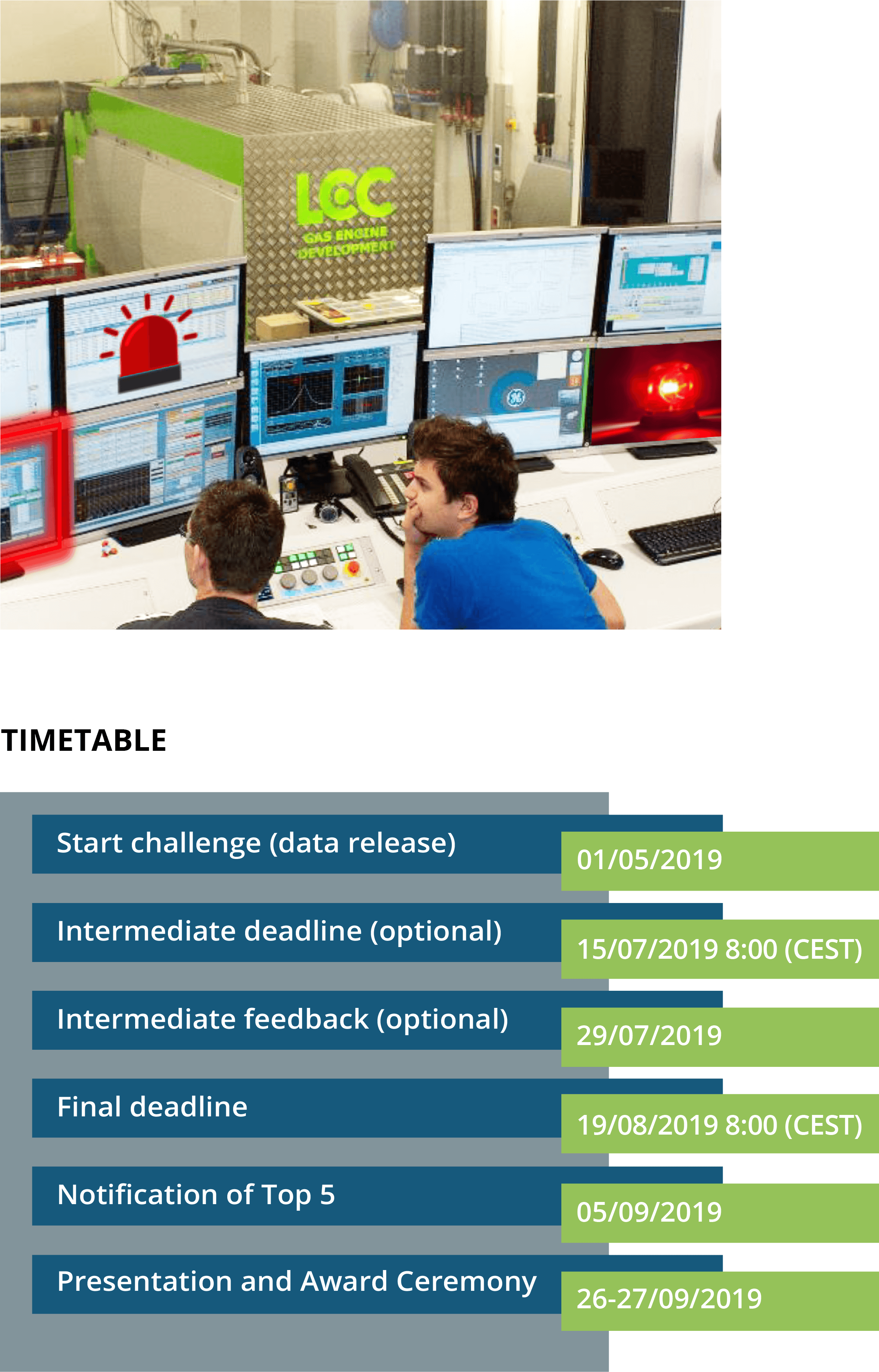LEC Data Challenge
Large Engines - Big Data: hunt down the fault at the first LEC Data Challenge!
Background
The LEC focuses on developing environmentally sound, efficient and robust large engines for sustainable transport and energy solutions. In the research and development process, systematic measurements are indispensable to evaluate technological advances. To conduct measurement campaigns as efficiently as possible, it is necessary to check the quality of the data immediately after it is generated directly at the engine test bed. In the event of a measurement fault, the prompt detection of the fault helps to ensure that corrective action is taken – e.g., the replacement of a faulty sensor. There are multiple ways to detect measurement faults, from simple limit checks to model-based methods that consider the physical relations of the variables. Since physical modeling of highly complex systems is limited, however, fault detection methods are required that are based not on explicit physical knowledge but on historical data.
LEC Data Challenge
With our first LEC Data Challenge, we would like to encourage data-enthusiastic students and practitioners from various disciplines to develop data-based fault detection methods that are best suited for our large engine applications. To this end, a training data set is provided, a second test data set contains multiple faults. The goal is to find as many as possible. The data challenge ranking will be based on the number of correctly classified points (faulty or fault-free). Thus, it is important not to identify fault-free records as faulty or vice versa.
Participation in the Challenge is possible from May 1 (earliest data release) to August 19, 2019. Data and detailed task description will be sent via email after successful registration. As an incentive, there is the possibility of voluntary intermediate submission to get feedback on how far away you are from the goal. If you have any questions please contact Doris Schadler via data.challenge@lec.tugraz.at
Rewards
The top five teams will be invited to present their contributions at the 17th symposium “The Working Process of the Internal Combustion Engine” focusing on sustainable Mobility, Transport and Power Generation in Graz on Thursday, September 26 – Friday, September 27, 2019.
The three best solutions selected by an expert jury will receive attractive prize money:
1st place: EUR 3.000,-
2nd place: EUR 2.000,-
3rd place: EUR 1.000,-
We wish you all the best in hunting for faults!

Registration
Registration is closed, and we are looking forward to the presentations of the best teams at The Working Process of the Internal Combustion Engine
A final wrap-up will follow soon.
